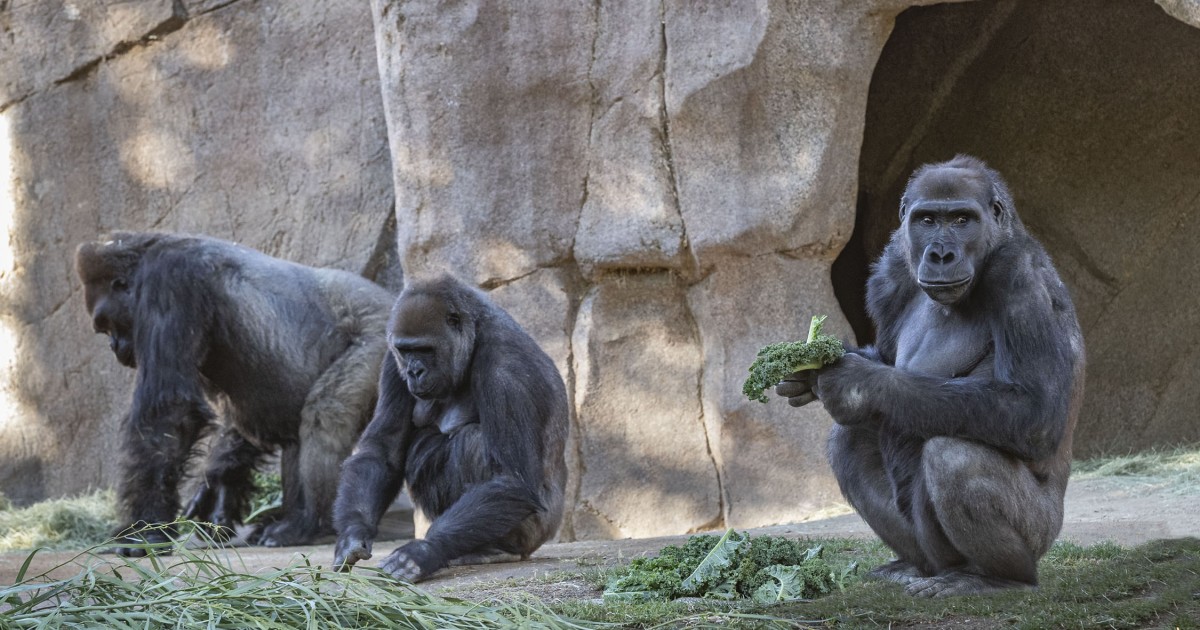Gorillas at San Diego Zoo Safari Park have recovered from a bout of the coronavirus and are ready for visitors, zoo officials announced Saturday.
The eight-member troop had been out of view to visitors after contracting the SARS-CoV-2 virus in January. During that time, they received care from experts in both human and veterinary medicine.
“We’re so grateful for the outpouring concern and support we’ve received while the troop safely recovered,” Lisa Peterson, executive director of the San Diego Zoo Safari Park, said in a statement. “We’re thrilled to share the joy that this beloved troop brings to our community and to our guests.”
The troop was likely exposed to the coronavirus by a keeper who tested positive for COVID-19 in early January. Although zoo employees followed recommended biosecurity precautions, some staff members tested positive for the virus on Jan. 11, zoo officials said.
Shortly afterward, several gorillas began coughing, and all the troop members appeared lethargic, according to Lisa Peterson, executive director of the Safari Park. Park staff tested the animals’ fecal samples for the coronavirus and received positive results for the so-called California variant of the virus, a fast-spreading strain linked to cases in San Diego and elsewhere in the state. The animals recuperated while the veterinary team monitored them for symptoms including coughing, congestion, nasal discharge and lethargy.
Zoo officials said the information gained from caring for the gorillas over recent weeks can improve understanding of the virus and its effects on great apes. And it may help manage zoonotic disease transmission and biosecurity protocols for wildlife in zoos and in the wild.
Guests can visit the gorilla troop at their home in the Safari Park’s Gorilla Forest. The Safari Park is now open from 9 a.m. to 5 p.m. daily.

